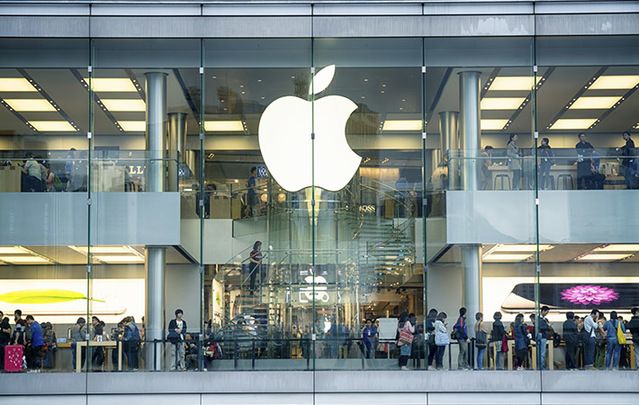Apple is required to submit further information to the Irish government’s planning body before a decision will be reached on a proposed new data center in Athenry, Co. Galway.
An Bord Pleanála, Ireland's national planning appeals board, is due to reach a decision on the center in February, but it is now expected that the final judgment will be pushed back until May as they await further information from Apple regarding five main concerns they have with the proposed $946.6 million (€850 million) site.
Last week the organization, which decides on appeals submitted by the public on planning decisions made by local authorities in Ireland, wrote to Arup Consulting Engineers – the firm overseeing the data center project – requesting further information on the choice of location, the use of renewable energy, the environmental impact of the center, any possible effects on protected species in the area, and the geology of the data center site.
The proposed center is to be situated outside of the small Galway town of Athenry and will power many of Apple's most important services across Europe, such as the iTunes Store, the App Store, iMessage, Maps, and Siri.
One of the organization's main concerns is Apple’s choice of this particular site. Located in rural Ireland, the proposed development is to be in an unserviced area of the country and the planning body is questioning the selection of this location over alternatives in other parts of the country. Apple is required to submit further information on the other sites considered and the reason why Athenry was deemed to be the most suitable.
The letter from a representative of An Bord Pleanála to Arup dated Feb 4 says: "The proposed development is located in an un serviced rural area on lands outside of any settlement and which are not the subject of any specific development objective. It is considered that the applicant has not adequately addressed the issue of site location and the alternatives considered prior to selecting the proposed site. The applicant is therefore requested to submit further information regarding the alternative sites considered and justification of the site size requirement used in the assessment of alternatives, comment on the specific alternative locations identified in the appeal submissions, and should be undertaken at a national scale."
Read more: Massive storms hit Ireland as planning corruption becomes clear (PHOTOS)
An Bord Pleanála’s second concern is the claim that Apple will use 100 percent renewable energy in the center without providing any details as to how this will happen.
The board claims: "no site or project specific information regarding renewable energy projects is provided and details of how they might be connected to the proposed development is required."
As regards the environmental impact of the development, the board expects Apple and Arup to submit a further Environmental Impact Statement (EIS), taking into consideration the development of a substation or grid connection which was not addressed in the first EIS, inconsistencies regarding the eventual size of the project, and the effects on the original EIS provoked by the addition of further information on how they will connect to a renewable energy source, in particular.
"The format of the EIS is also considered to be somewhat inconsistent with regard to the extent of the development proposed and the impacts presented,” the board said.
“The site location is justified on the basis of a phased development of up to eight data halls and a masterplan for the overall development of the site has been submitted with the application, however sections of the EIS assess impacts on the basis of Phase 1 alone."
The board’s fourth issue involves the lack of ecological surveys provided by Arup and Apple with the original submission, especially the lack of surveys carried out on bats in the area.
An Bord Pleanála’s last main concern requires Apple and Arup to also provide further information on the geological makeup of the proposed site.
"The applicant is requested to submit an overview of the ground characteristics in the vicinity of the proposed percolation area for treatment systems serving the administration building and data halls,” they wrote.
“The submitted information shall include the depth of bedrock, depth to the water table, soil/sub soil classification and an assessment of the permeability of the soil/subsoil in this area."
Apple and Arup must supply the information to An Bord Pleanála by March 7 or the planning body may dismiss the case and planning permission will not be granted. The were originally granted permission for the center by the local authority in September 2015.
The decision to build a data center in Ireland was revealed by Apple almost a year ago, allowing the company to forgo their reliance on third-party and public cloud services to control the data traffic for many of its services.
With 18 percent of the company’s total revenues coming from Europe, Apple was hoping a data center in Ireland would help create greater efficiencies and scale operations better throughout the continent, creating hundreds of jobs in Ireland in the process.
Read more: Fassbender gets the Jobs done – career-making performance as Apple boss




Comments